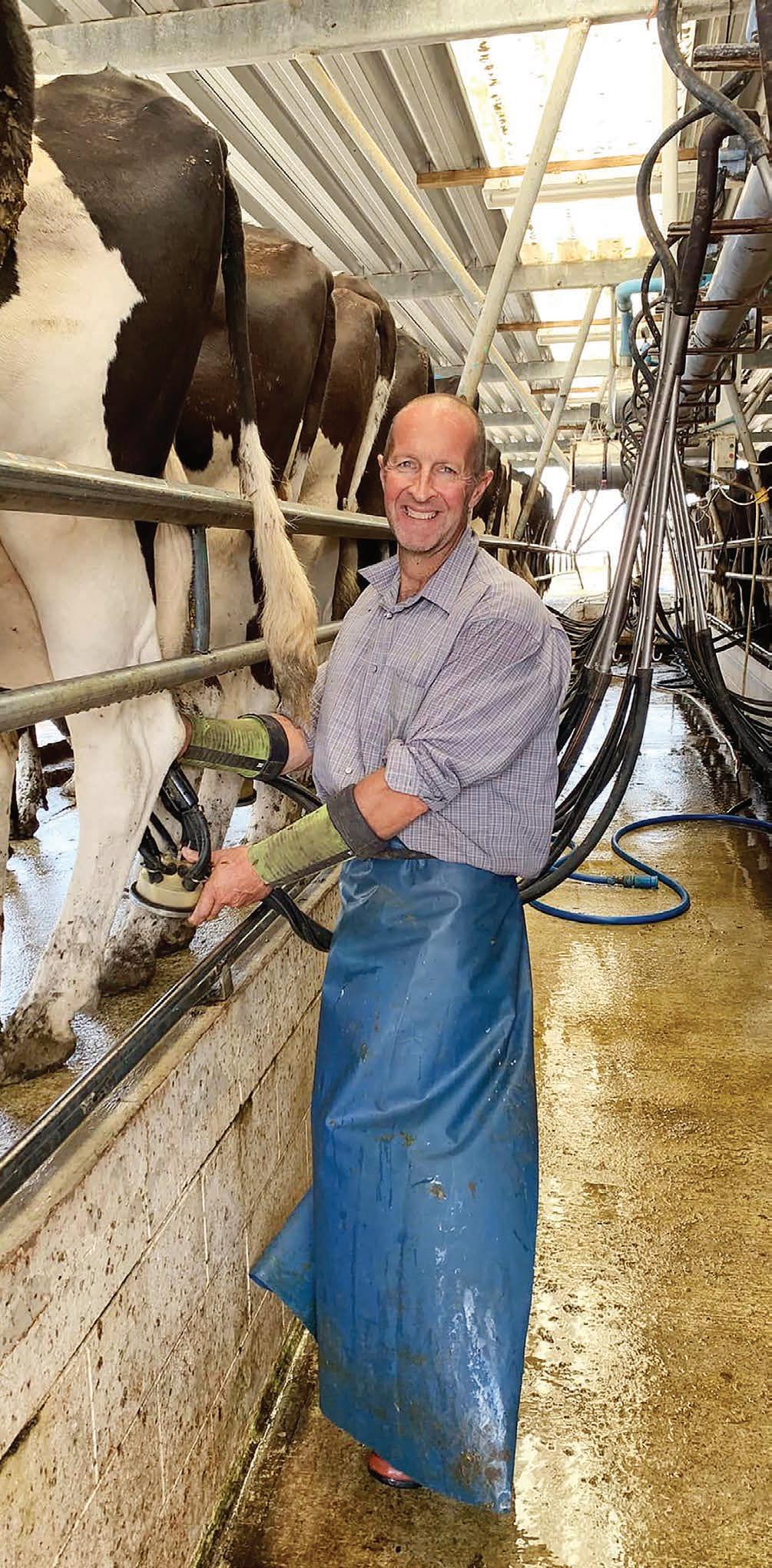
4 minute read
Pulpit
A lot of hot air is cold comfort for farmers
Mark Cameron
IT’S been about two years since I swapped my stubbies for a suit and my quad bike for a seat in the parliamentary chamber.
I was driven by the opportunity to provide an authentic farming voice in Parliament to represent a very important part of New Zealand society.
As an Opposition MP it’s my job to hold the Government to account, so you’ll be unsurprised to know that I’ve been less than impressed with the Government’s approach to rural New Zealand.
There’s been a plethora of legislative changes that I’ve fought against (and continue to do so) such as Significant Natural Areas that put property rights under threat, the tax on utes to subsidise Teslas, ensuring winter grazing regulations that aren’t practical are not implemented, campaigning for allowing the rural workforce to come through the border, and many more.
As someone who is familiar with the realities of operating a farming business (long days, plenty of adversity, big bills, but a lifestyle that is second to none), it can be particularly frustrating seeing legislation coming down the pipeline and conjecture about agriculture from MPs that does not reflect the reality of the job.
Recently we saw the Emissions Reduction Plan announced by James Shaw as part of Grant Robertson’s brain drain Budget.
Taken as a whole, the plan is more about social engineering than emissions reduction and seeks to spend a huge amount of money to achieve no outcome in emissions reduction – because our emissions are already capped under the ETS anyway.
It’s political theatre at its most egregious and sadly taxpayers will foot the bill for it.
Some of the sector groups have lauded the plan for its decision to allocate $700m to research into emissions reduction for agriculture, but personally I’m more reticent.
I’m firmly in favour of developing the tech, ACT has always said that agricultural emissions have no business being taxed until real technology exists to lower emissions, and until more accurate measurements for sequestration from crops exists.
However, Shaw has spoken many times of how $200m has already been spent on this sort of technology, and what has this delivered for farmers on the open market so far?
If a technological advancement is developed and farmers are unable to use it, does it make a difference?
What I’m saying is that it’s all very well saying you’re throwing money at technological solutions, it’s another thing to make them available to farmers. Take Bovaer for example, it’s a feed additive that has the potential to reduce methane emissions by up to 30%.
It has been approved for use by the European Union and in South America, but here the application has been sitting on the desk at the EPA gathering dust for 13 months.
Another example is the HME Ryegrass technology that has been developed by our very own AgResearch.
Trials have been completed in the United States and the results are promising, however we can’t even complete trials nor use it in New Zealand simply because of legislative hurdles with the Hazardous Substances and New Organisms Act.
Surely if the Government was trying to promote technological advancements they’d begin by fixing the legislation and allowing what’s already there to be used?
That’s what ACT would do.
It’s exacerbated by a lack of transparency towards rural New Zealand from this Government.
Scrutiny and attempts to gain information about programmes such as He Waka Eke Noa are met with an almost arrogant disdain.
Whenever Ministers are questioned on the topic of how they plan to reduce methane output, and whether their plan includes reducing the herd size we’re met by a brick wall of pithy, throwaway comments and answers that change depending on who they think the audience is.
It would be catastrophic if the Government did force farms to destock.
Peoples’ livelihoods would be ruined and likely with no benefit to the climate, as the market space will just be snapped up by a less efficient producer from overseas.
I doubt there are many farmers out there who aren’t constantly thinking of ways to improve their farming operation or looking at innovation they can incorporate.
As such, I believe they’re justified in a bit of straight talk in what the Government is working on that will directly affect them.
There’s money up the wazoo being allocated – that’s nothing new with this Government, but the results don’t match up with the spend and I’m worried that come 2025 farmers are going to still be waiting for something to come their way and help reduce their emissions.
That’s why the Minister should be providing some detail on where the money is going and when farmers will see results.
The rest of the world is embracing technology and we’re busy discussing targets and a tax system to reduce New Zealand’s ag emissions without the tools to back them.
The biggest help we could give to farmers right now would be by cutting the red tape and giving them the opportunity to safely invest in science-backed tools that are ready.
ThePulpit
As someone who is familiar with the realities of operating a farming business, it can be particularly frustrating seeing legislation coming down the pipeline and conjecture about agriculture from MPs that does not reflect the reality of the job.
Mark Cameron ACT Party

HELP NEEDED: Mark Cameron says the rest of the world is embracing technology and we’re busy discussing targets and a tax system to reduce New Zealand’s ag emissions without the tools to back them.
Who am I?
Mark Cameron is the ACT Party’s agriculture spokesperson.






